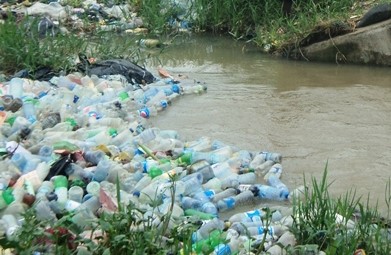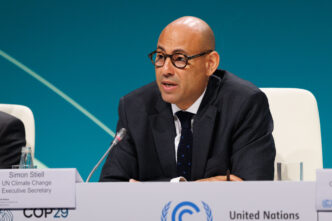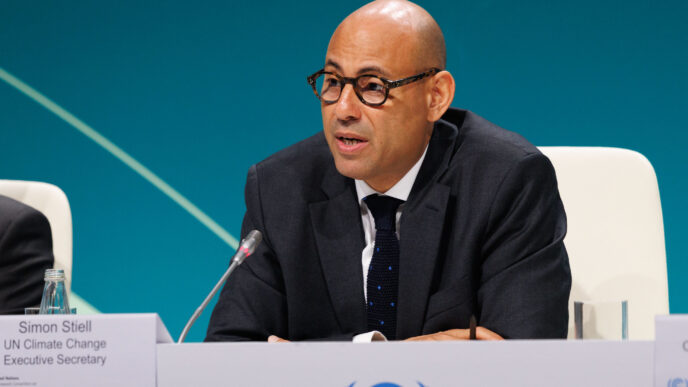Plastic waste in a stream
An expert group has called for a science-backed global treaty to end the menace of plastic pollution.
Their resolution was published in the International Science Council (ISC) report.
The report titled ‘Effective Progress and Implementation of the INC-5 Plastics Treaty Through Scientific Guidance’, was released on May 26 and co-authored by 16 researchers.
The recommendations in the report are expected to guide the final stages of the plastics treaty negotiations (INC-5.2) scheduled for August in Geneva, Switzerland.
Advertisement
It recommends a global target to limit the production of primary plastic polymers to sustainable levels within a specific time frame, based on specific indicators and regularly reviewed by a scientific body.
The report advocated for the creation of global, science-based standards to identify harmful chemicals and problematic plastic products, along with specific timelines for phasing them out.
It called for strong monitoring and evaluation systems, using globally standardised methods and open-access data to track the treaty’s progress and support transparent, evidence-based decisions.
Advertisement
The authors also recommended the adoption of inclusive advisory models that incorporate scientific research across disciplines, as well as indigenous, local, and stakeholder knowledge for the treaty’s implementation.
They urged member states to include legally binding measures to curb unsustainable plastic production and tackle harmful chemicals and products.
Adetoun Mustapha Olaitan, an energy and environmental health professional, said the world must create a new balance with the ocean—one that no longer depletes its resources but helps revive its vitality.
Mustapha Olaitan, who is also a co-author of the report, called for urgent global and individual action to tackle plastic pollution and restore the health of the world’s oceans.
Advertisement
She urged citizens to reduce plastic consumption, avoid single-use plastics, support recycling schemes, and push for the removal of microplastics from consumer products.
Mustapha Olaitan added that companies must innovate and eliminate unnecessary plastic packaging, while industries should make the shift from harmful production methods to circular economy models that prioritise reuse and recycling.
“We need to rethink how we design, make, use and reuse plastics. Products should be made to last and be recyclable at the end of their life,” she said.
Advertisement








